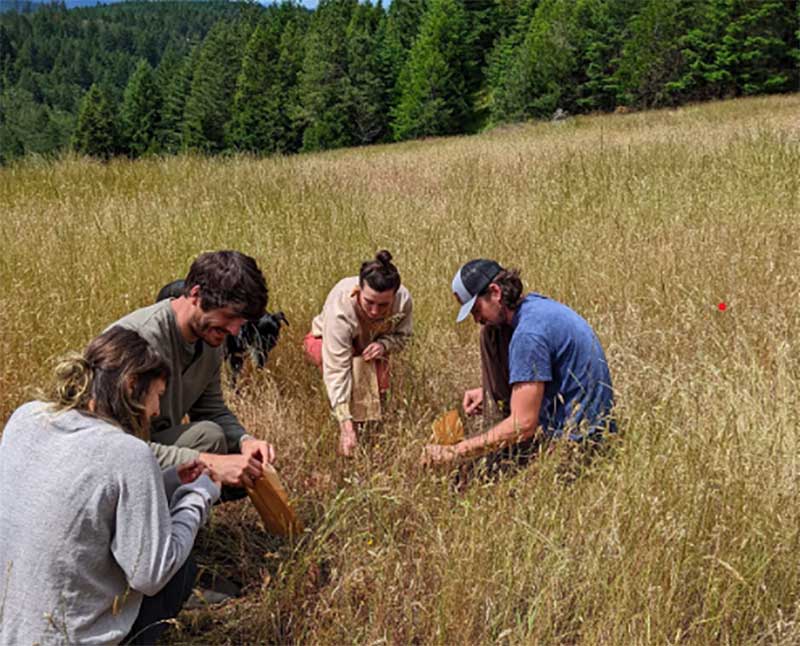Our Work
Understory Restoration Working Groups
Kincaid's Lupines growing in oak savanna with serpentine soil. Credit: Eric Stauder
Community-based initiatives to conserve native plant communities and restore landscape resilience are inextricably linked to social, economic, and environmental sustainability. The Douglas Soil and Water Conservation District (DSWCD) facilitates on-the-ground projects that enhance priority habitat and promote diverse native plant communities. DSWCD’s Cooperative Weeds Management Area (CWMA) committees foster greater communication and collaborative efforts among partners focused on cross-boundary integrative noxious weeds treatments between private, public, and tribal lands. The Oak Habitat CWMA strengthens collective understory restoration outcomes aligned with the shared goals of landowners and natural resource specialists. Sharing information and leveraging resources builds partnership capacity for concerted noxious weeds management strategies that effectively protect remnant oak habitat, mitigate wildfire risk, and support working lands.

The Umpqua Native Plant Partnership (UNPP), emerging from the umbrella of The Understory Initiative (TUI), is dedicated to cultivating a local restoration supply chain by building a network of volunteers, native plant producers, natural resource specialists, and landowners. Following Seeds of Success (SOS) program guidelines with support from the Institute of Applied Ecology (IAE), UNPP serves to help increase community access to locally adapted and ecologically appropriate native plant materials while strategically addressing understory conservation challenges. Native forbs, grasses, shrubs, and trees are grown in seed-increase fields, containers, and as bare-root stock based on annually forecasted species priorities and partnership needs for ecosystem restoration. Surplus native plant materials are offered to the general public through seasonal native plant sales and fundraising events that directly support the expansion of pollinator and wildlife habitat enhancement projects.To learn more about understory restoration efforts and sourcing locally adapted native seeds and plants, please contact Eric Stauder at staudere@oregonstate.edu or call 541-784-8608.